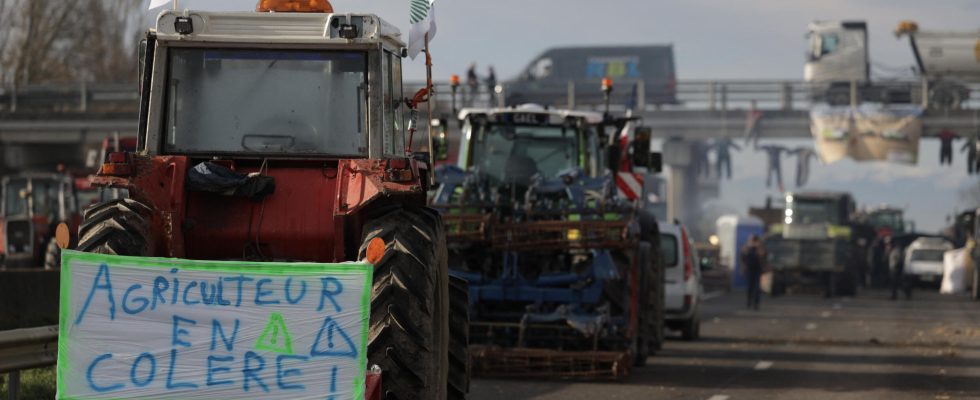In France, farmers have been blocking a highway in the South-West for several days. The FNSEA, the country’s main agricultural union, has been calling for action all week. Peasant anger has also been heard recently in Germany and previously in the Netherlands. The reasons are multiple. Among them, the rules imposed in terms of the environment.
4 mins
The triggers differ. But they have common foundations. The discontent is partly caused by the implementation of environmental measures. Among the issues that irritate: that of fallow land. The European Union has refused to extend until 2024 the derogation allowing fallow land to be cultivated. Other sensitive subjects: files on the preservation of meadows and a new European cartography of wetlands and peatlands.
Files on which farmers have nevertheless won their cases also appear on the list of demands in France. In November, the project aimed at halving the use of chemical phytosanitary products by 2030 was abandoned in the European Parliament. But, with the European elections approaching in June, demonstrators hope to exert influence to ensure that the project does not return to the table.
Read alsoFrance: faced with the revolt, the government postpones its agricultural reform
The management of environmental standards singled out
But, “ the problem for farmers is not so much the environmental standard, nuance François Purseigle, professor of sociology at Agro Toulouse, it is the management of the environmental standard. »
French farmers also denounce a “ stacking of standards » complicating their activity. However, France has perhaps not always provided sufficient support tools in the implementation of standardization, unlike other countries such as Spain », underlines François Purseigle. Especially since they “ think technologically disarmed in the face of the challenge of transition », explains the sociologist. “S’they want to make a transition to organic farming, for example, this means using the tractor more often, and therefore having a workforce.”
Additional costs are what also worries some farmers about fuels. In France, an agreement was reached last summer between the government and the FNSEA on a gradual reduction of the tax loophole on non-road diesel, a way to no longer favor a fossil fuel that emits greenhouse gases. But not all unions are on the same line. Taxes on agricultural diesel also served as a spark in Germany, in January 2024.
Read alsoFarmers awaiting “answers on product prices” and “unfair competition”
Other grievances elsewhere in Europe
At the origin of the anger in the Netherlands in 2022, again, environmental legislation. A bill aimed at reducing nitrogen emissions by reducing livestock numbers led to months of protests.
Nevertheless, ” the Dutch “agrarian” movement should not be confused with the German and French protest movement », analyzes François Purseigle. And to explain: “ In the Netherlands, measures were taken against agriculture considered too intensive and there was agglomeration, elements of demands between an agrarian party and the farmers. We are not there in the west of Germany, nor in France “.
Read alsoNetherlands: demonstration by farmers angry against the reduction of livestock
Exasperation growing in eastern Europe
“ Exasperation » is also growing in Poland, Romania, Slovakia and Hungary for other reasons. The producers mainly denounce the “ competition » Ukrainian cereals.
Read also“We are no longer letting ourselves be fooled”: German farmers are facing the government’s cost-saving measures
To try to ease tensions, the European Commission will launch on January 25 a “ strategic dialogue » bringing together, among other agricultural organizations, NGOs and experts.

